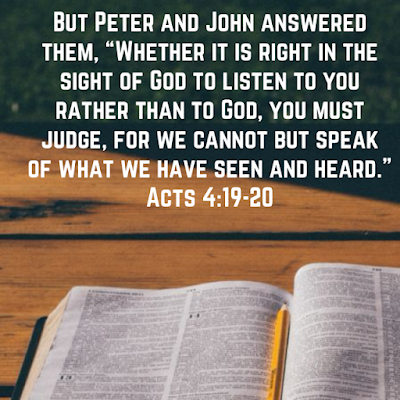There are three pairs of fascinating truths in this one verse. These give us keen insight into Gospel ministry. The location was “in the temple, and in every house.” The communication was both “teaching and preaching.” The concentration was on “Jesus,” the Savior, and “Christ,” the Lord. This is the Biblical balance.
OUR MINISTRY is to be public and private. It is “in the temple, and in every house.”
When the saints gather in a corporate setting for worship, the preaching of the Word is to be central. Whether it be expounded from the pulpit, or sung from the choir loft, or taught in a classroom, Scriptural truth and sound theology are at the core of all communication in the church house.
Yet, this instruction is not to be limited to when people come to the church house, but also we are to take the message to their house. The kind of intimacy that occurs in a home is conducive to a deeper study of the Word, with greater interchange between the teacher and the disciples.
OUR METHODOLOGY is to be explanation and exhortation. We need “teaching and preaching.”
The Greek term for “teaching,” is to provide instruction. It stresses unfolding the Scriptures in such a way that the truth is grasped. The Word of God is to be clear. There is power in that Word. It is alive and active when presented. Too often a text is read only as a pretext for what the preacher wants to say. Apart from the Word of God, there is nothing that needs to be said! We give explanation.
The Greek word for “preaching,” is the word from which we get “evangelism.” It is the communication of the Gospel. Sinners need to be exhorted to come to Christ. They must be confronted with His claims. Yet, it must also be said that we never outgrow our need for the Gospel. Even those who were converted years ago, still need to be reminded of the saving work of Christ. This is God’s Word, and here is what we need to do about it. We give exhortation.
OUR MESSAGE is of salvation and sanctification. We present “Jesus as the Christ.”
The name “Jesus,” means, “Yahweh is salvation.” The angel Gabriel said to Joseph that his virgin betrothed, Mary, would have a miracle baby who would be given that name, “for He will save His people from their sins,” (Matt. 1:21). The message of salvation is to be presented as we evangelize.
The name “Christ,” means “the Anointed One.” Christ is anointed Prophet, Priest, and King. He was sanctified (set apart) for us so that we might be sanctified unto God. Jesus said, “And for their sakes [the disciples] I sanctify Myself, that they also may be sanctified by the truth,” (John 17:19, explanatory note added). Prophet speaks to His instructive role. He is the Truth. Priest points to His intercessory role. He is the Way. King speaks to His imperial role. He is the Life. Sanctification results from this message as we submit to Christ as Lord.
Let me close by saying this balance needs to be sought by every shepherd of the flock. When Paul presents the gifted leaders of the church in Ephesians 4:11 there are those who see five offices: “apostles…prophets…evangelists…pastors…teachers.” Yet, in the original text the last office is a composite word “pastor/teacher.” It is better understood as being one man with both roles—“teaching and preaching”—as we see in Acts 5:42. May every man of God pursue the Biblical balance we see here!





